第72章 VIII. THE COLOMBAN TRIAL(1)
When the Colomban trial began, the Pyrotists were not many more than thirty thousand, but they were every where and might be found even among the priests and millionaires. What injured them most was the sympathy of the rich Jews. On the other hand they derived valuable advantages from their feeble number. In the first place there were among them fewer fools than among their opponents, who were over-burdened with them. Comprising but a feeble minority, they co-operated easily, acted with harmony, and had no temptation to divide and thus counteract one another's efforts. Each of them felt the necessity of doing the best possible and was the more careful of his conduct as he found himself more in the public eye. Finally, they had every reason to hope that they would gain fresh adherents, while their opponents, having had everybody with them at the beginning, could only decrease.
Summoned before the judges at a public sitting, Colomban immediately perceived that his judges were not anxious to discover the truth. As soon as he opened his mouth the President ordered him to be silent in the superior interests of the State. For the same reason, which is the supreme reason, the witnesses for the defence were not heard. General Panther, the Chief of the Staff, appeared in the witness-box, in full uniform and decorated with all his orders. He deposed as follows:
"The infamous Colomban states that we have no proofs against Pyrot. He lies; we have them. I have in my archives seven hundred and thirty-two square yards of them which at five hundred pounds each make three hundred and sixty-six thousand pounds."
That superior officer afterwards gave, with elegance and ease, a summary of those proofs.
"They are of all colours and all shades," said he in substance, "they are of every form--pot, crown, sovereign, grape, dove-cot, grand eagle, etc. The smallest is less than the hundredth part of a square inch, the largest measures seventy yards long by ninety yards broad."
At this revelation the audience shuddered with horror.
Greatauk came to give evidence in his turn. Simpler, and perhaps greater, he wore a grey tunic and held his hands joined behind his back.
"I leave," said he calmly and in a slightly raised voice, "I leave to M.
Colomban the responsibility for an act that has brought our country to the brink of ruin. The Pyrot affair is secret; it ought to remain secret. If it were divulged the cruelest ills, wars, pillages, depredations, fires, massacres, and epidemics would immediately burst upon Penguinia. I should consider myself guilty of high treason if I uttered another word."
Some persons known for their political experience, among others M. Bigourd, considered the evidence of the Minister of War as abler and of greater weight than that of his Chief of Staff.
The evidence of Colonel de Boisjoli made a great impression.
"One evening at the Ministry of War," said that officer, "the attache of a neighbouring Power told me that while visiting his sovereign's stables he had once admired some soft and fragrant hay, of a pretty green colour, the finest hay he had ever seen! 'Where did it come from?' I asked him. He did not answer, but there seemed to me no doubt about its origin. It was the hay Pyrot had stolen. Those qualities of verdure, softness, and aroma, are those of our national hay. The forage of the neighbouring Power is grey and brittle; it sounds under the fork and smells of dust. One can draw one own conclusions."
Lieutenant-Colonel Hastaing said in the witness-box, amid hisses, that he did not believe Pyrot guilty. He was immediately seized by the police and thrown into the bottom of a dungeon where, amid vipers, toads, and broken glass, he remained insensible both to promises and threats.
The usher called:
"Count Pierre Maubec de la Dentdulynx."
There was deep silence, and a stately but ill-dressed nobleman, whose moustaches pointed to the skies and whose dark eyes shot forth flashing glances, was seen advancing toward the witness-box.
He approached Colomban and casting upon him a look of ineffable disdain:
"My evidence," said he, "here it is: you excrement!"
At these words the entire hall burst into enthusiastic applause and jumped up, moved by one of those transports that stir men's hearts and rouse them to extraordinary actions. Without another word Count Maubec de la Dentdulynx withdrew.
All those present left the Court and formed a procession behind him. Prostrate at his feet, Princess des Boscenos held his legs in a close embrace, but he went on, stern and impassive, beneath a shower of handkerchiefs and flowers.
Viscountess Olive, clinging to his neck, could not be removed, and the calm hero bore her along with him, floating on his breast like a light scarf.
When the court resumed its sitting, which it had been compelled to suspend, the President called the experts.
Vermillard, the famous expert in handwriting, gave the results of his researches.